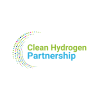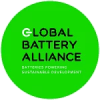Strategic partnerships

2Zero
2Zero aims to achieve these goals through utilising world-class European R&I efforts and industrial systems to develop a landscape for a competitive new generation of light-weight, energy-efficient and affordable vehicles and support measures to facilitate their rapid deployment.
The scope of 2Zero is set on a diverse range across the mobility system where it prioritises vehicle technologies and propulsion solutions for Battery-Electric Vehicles (BEV’s) and Fuel-Cell Electric Vehicles (FCEV’s), with specific attention to facilitating BEV’s into the energy system and related charging infrastructure across Europe. Drawing from previously successful experiences from EGCI and EGVI, 2Zero will also gear its focus towards Life Cycle Assessment and circular economy approaches for sustainable and innovative road mobility solutions.
CLEPA’s goals within 2Zero are centred around facilitating the success of the partnership to cement EU technological leadership in the next decade and help create the right policy conditions for public and private investment in R&I, which will stimulate innovation and create jobs across Europe.
Accordion 1
Lorem ipsum dolor ist amte, consectetuer adipiscing eilt. Aenean commodo ligula egget dolor. Aenean massa. Cum sociis natoque penatibus et magnis dis parturient montes, nascetur ridiculus mus. Donec quak felis, ultricies nec, pellentesque eu, pretium quid, sem.
Accordion 2
Lorem ipsum dolor ist amte, consectetuer adipiscing eilt. Aenean commodo ligula egget dolor. Aenean massa. Cum sociis natoque penatibus et magnis dis parturient montes, nascetur ridiculus mus. Donec quak felis, ultricies nec, pellentesque eu, pretium quid, sem.

ASA
The ASA was created in November 2020 under the Pact for Skills, the first flagship action of the European Skills Agenda, firmly anchored in the European Pillar of Social Rights principles. The pact aims to mobilise and incentivise private and public stakeholders to invest and take concrete action for the upskilling and reskilling of working-age people.
The European automotive industry is undergoing an unprecedented green & digital transformation. The mobility ecosystem is facing additional pressures caused by continued supply chain disruptions post COVID-19, and increases in the price of raw materials, energy and semiconductors. The transition impacts the 15 million people employed in the automotive value-chain, putting jobs at risk and challenges in acquiring new skilled talent for emerging jobs.
The ASA currently gathers more than 90 partners, including large automotive companies and SMEs, national and local authorities, social partners, sectoral organisations, education bodies and training providers. The ASA became a legal entity (non-profit organisation) in January 2022 and is based in Brussels, in the heart of the European Union.
Accordion 1
Lorem ipsum dolor ist amte, consectetuer adipiscing eilt. Aenean commodo ligula egget dolor. Aenean massa. Cum sociis natoque penatibus et magnis dis parturient montes, nascetur ridiculus mus. Donec quak felis, ultricies nec, pellentesque eu, pretium quid, sem.
Accordion 2
Lorem ipsum dolor ist amte, consectetuer adipiscing eilt. Aenean commodo ligula egget dolor. Aenean massa. Cum sociis natoque penatibus et magnis dis parturient montes, nascetur ridiculus mus. Donec quak felis, ultricies nec, pellentesque eu, pretium quid, sem.

BATT4EU
Through these aligned efforts, the BATT4EU partnership will play an essential role in contributing towards the development of the key activities that will be necessary to make the green deal targets necessary. This will be done through advanced materials development, and battery cell design and manufacturing, all of which will be crucial in facilitating an efficient transition towards climate targets and a viable, inclusive shift towards full electrification.
In practicality, by 2030 and using 2019 as a benchmark, these developments in battery technology are aimed at yielding a 60% increase in battery energy and an increase in the charging rate, to double the cycle lifetime and to reduce battery cost of batteries by 60%., and to implement worldwide best available technologies in manufacturing and recycling operations. Further down the value chain, BATT4EU will also work towards enhancing the sustainability of the main supply chains of battery raw materials through green manufacturing and recycling practices.
Accordion 1
Lorem ipsum dolor ist amte, consectetuer adipiscing eilt. Aenean commodo ligula egget dolor. Aenean massa. Cum sociis natoque penatibus et magnis dis parturient montes, nascetur ridiculus mus. Donec quak felis, ultricies nec, pellentesque eu, pretium quid, sem.
Accordion 2
Lorem ipsum dolor ist amte, consectetuer adipiscing eilt. Aenean commodo ligula egget dolor. Aenean massa. Cum sociis natoque penatibus et magnis dis parturient montes, nascetur ridiculus mus. Donec quak felis, ultricies nec, pellentesque eu, pretium quid, sem.

CCAM
In the context of the Green Deal, CCAM represents the largest concerted effort to focus on the aspects of the deal around the development and implementation of digitisation and automation in mobility across the EU.
With CLEPA’s Director of Research, Innovation and New Mobility, David Storer on the executive board of the Association, CCAM will work towards these ends until 2030.
Accordion 1
Lorem ipsum dolor ist amte, consectetuer adipiscing eilt. Aenean commodo ligula egget dolor. Aenean massa. Cum sociis natoque penatibus et magnis dis parturient montes, nascetur ridiculus mus. Donec quak felis, ultricies nec, pellentesque eu, pretium quid, sem.
Accordion 2
Lorem ipsum dolor ist amte, consectetuer adipiscing eilt. Aenean commodo ligula egget dolor. Aenean massa. Cum sociis natoque penatibus et magnis dis parturient montes, nascetur ridiculus mus. Donec quak felis, ultricies nec, pellentesque eu, pretium quid, sem.

Clean Hydrogen Partnership
Accordion 1
Lorem ipsum dolor ist amte, consectetuer adipiscing eilt. Aenean commodo ligula egget dolor. Aenean massa. Cum sociis natoque penatibus et magnis dis parturient montes, nascetur ridiculus mus. Donec quak felis, ultricies nec, pellentesque eu, pretium quid, sem.
Accordion 2
Lorem ipsum dolor ist amte, consectetuer adipiscing eilt. Aenean commodo ligula egget dolor. Aenean massa. Cum sociis natoque penatibus et magnis dis parturient montes, nascetur ridiculus mus. Donec quak felis, ultricies nec, pellentesque eu, pretium quid, sem.

GBA
Accordion 1
Lorem ipsum dolor ist amte, consectetuer adipiscing eilt. Aenean commodo ligula egget dolor. Aenean massa. Cum sociis natoque penatibus et magnis dis parturient montes, nascetur ridiculus mus. Donec quak felis, ultricies nec, pellentesque eu, pretium quid, sem.
Accordion 2
Lorem ipsum dolor ist amte, consectetuer adipiscing eilt. Aenean commodo ligula egget dolor. Aenean massa. Cum sociis natoque penatibus et magnis dis parturient montes, nascetur ridiculus mus. Donec quak felis, ultricies nec, pellentesque eu, pretium quid, sem.

